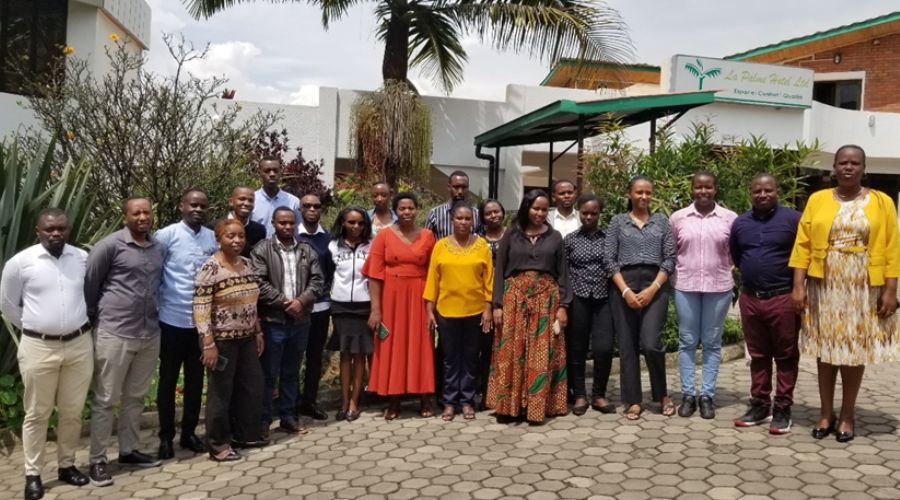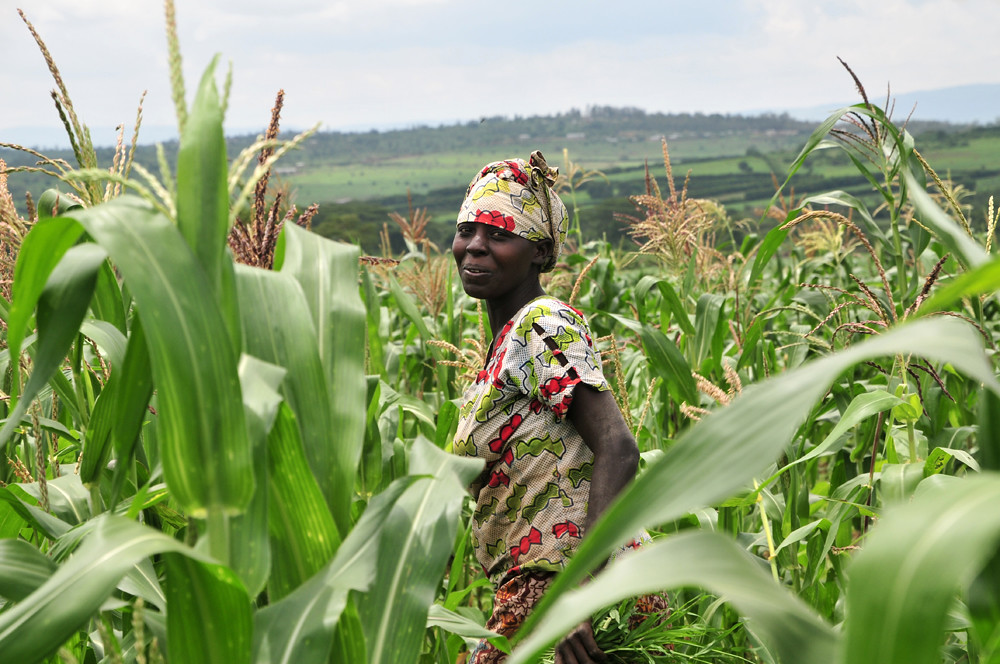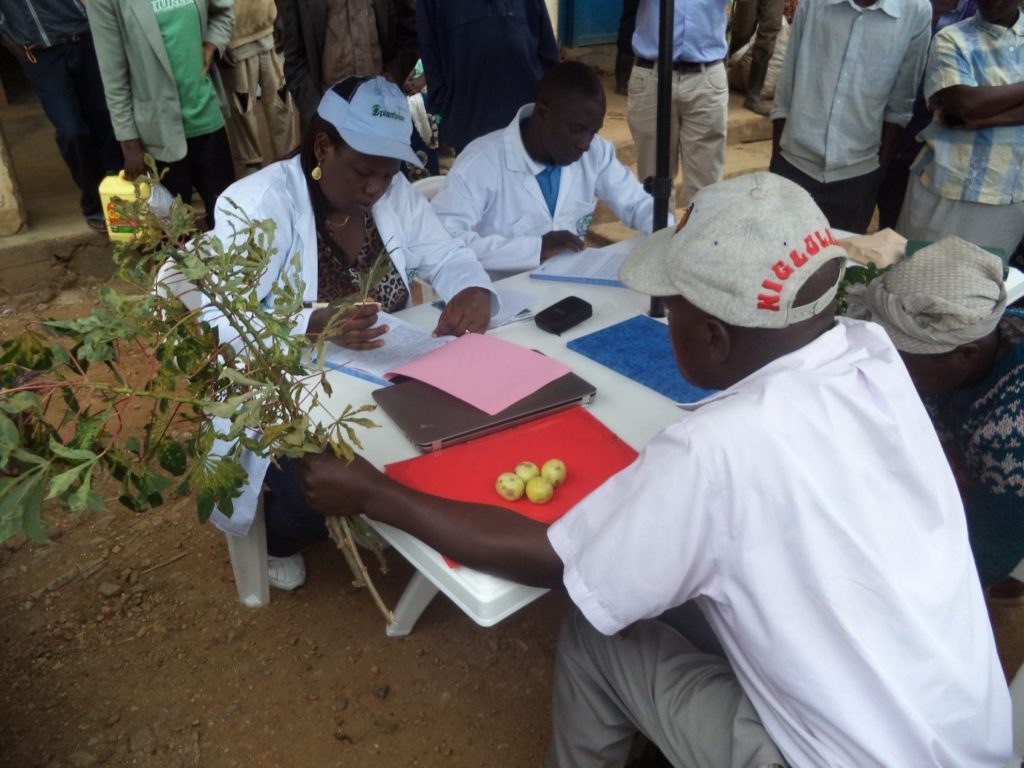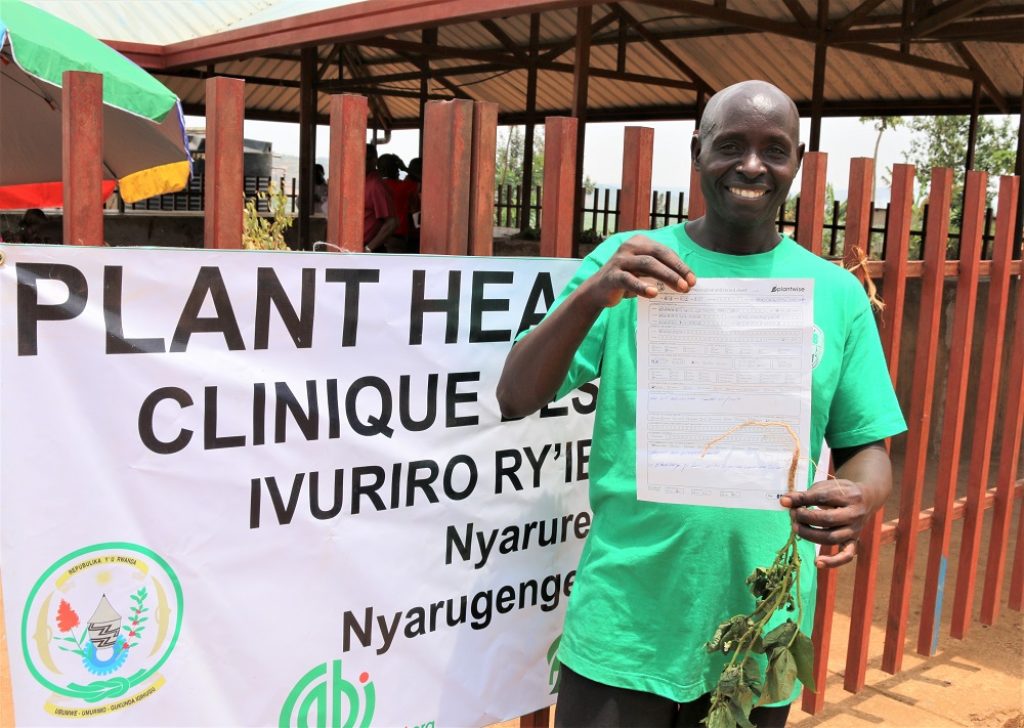Plant doctor training improves Rwandan farmers’ access to plant health advice
A six-day Plantwise plant doctor training session took place in Rwanda this March. Funded by CABI, the training aimed to build the capacity of Rwanda Inspectorate, Competition and Consumer Protection Authority (RICA) staff in the diagnosis of crop pest problems, and providing advice to farmers.
Why multi-channel agricultural extension works for fighting crop pests
Addressing fall armyworm in Eastern Rwanda We might often have a sense that if taking one course of action works, then doing more of it should amplify that work. It turns out this really is the case regarding agricultural extension. A PlantwisePlus-funded study has discovered the benefits of ‘multi-channel agricultural extension’. The research focused on…
Crop-devastating pests in Rwanda to be targeted with space-age technology from PRISE programme
Pests, which threaten to destroy key cash and food security crops including maize, tomato and beans, are to be prioritized as part of an integrated pest management strategy using state-of-the-art space-age technology. Scores of smallholder farmers in Rwanda are the latest to benefit from the CABI-led consortium, funded by the UK Space Agency and the Global Challenges Research…
Investing in smallholder farmers for a food-secure future
Smallholder farmers provide the vast majority of the world’s food supply, and ‘small-scale farming’ is the largest occupation group of economically active people, 43% of which are women. Approximately 2 billion of the world’s poorest live in households that depend on agriculture in some form for their livelihoods, whether this is for market or subsistence.…
The chicken or the egg?
“I started with just 100 chickens”, begins Mr Jean Claude Ruzibiza. He goes on to explain how from small beginnings he has now become Managing Director of Rwanda Best, a farm producing 4,500 eggs a day and growing fruit and veg to satisfy a significant part of nearby Kigali’s hungry population. With malnutrition in the world…
Agricultural innovation framework agreed in Rwanda
Contributed by Rachel Winks, CABI. The partner organisations of the Tropical Agriculture Platform (TAP) met in Kigali, Rwanda, on 19-21 January to agree a new concept for agricultural innovation: the common framework on capacity development for agricultural innovation systems. With growing global population and increased food demand, agricultural innovation can help improve food security, increase…
Update: Plant Health News (25 Feb 15)
Here’s a taste of some of the latest stories about plant health, including the Giant African land snails invading Cuba, the debate over GM bananas in Uganda and a new report from the World Food Programme on connecting farmers to markets. Click on the link to read more of the latest plant health news!
Maize lethal necrosis has spread to Rwanda
Report by Abigail Rumsey, Beatrice Uwumukiza and Bellancila Uzayisenga. In the past two years, we have reported on the presence of the maize lethal necrosis (MLN) disease in East African countries including Kenya, Tanzania and Uganda. The disease is also present in South Sudan. The most recent report has been of its spread to the…






